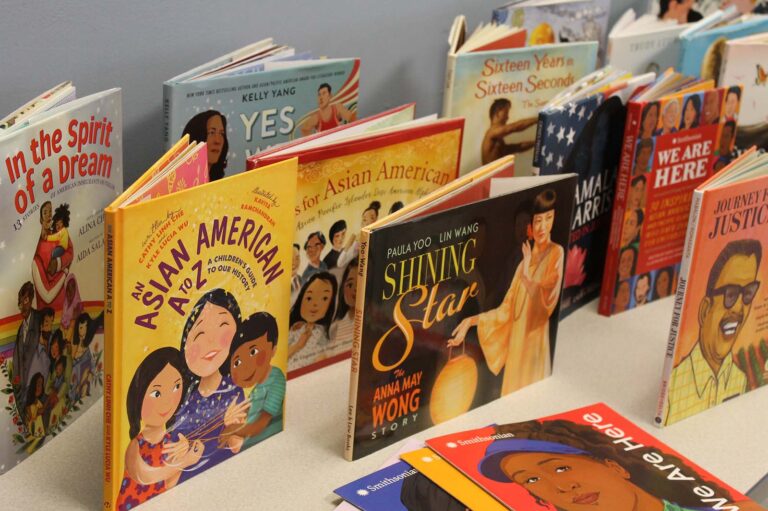CHAMPAIGN — Social studies teacher Samantha Stearns knew that her town, River Forest, held the LemonAid fundraiser every year to remember the 9/11 attacks on New York City and the Pentagon.
She didn’t think much more about it until 2022, when she participated in I3: Inclusive, Inquiry-based Social Studies for Illinois.
“[The initiative is about] moving from this idea of history being a subject of rote memorization to something where [students] can actively apply the skills that you’re learning in the classroom,” Stearns said.
The third cohort of 250 teachers started on Tuesday, with Stearns as a guest speaker.
Stearns’ eighth-grade students had already expressed curiosity about her attending the 9/11 LemonAid fundraiser. She decided to funnel that curiosity into oral history projects.
Students gathered stories about a great uncle who led a search and rescue mission at the Pentagon on September 11, 2001. One student delved into museum records to uncover photos of belongings from her mother’s college friend, who tragically died in the attacks. Others explored the experiences of their Muslim and immigrant parents who faced ostracization after the attacks.
The River Forest LemonAid event now showcases the results every year.
The state relies on training, instead of enforcement, to spread new social studies requirements
Over the past four years, Illinois has updated its social studies requirements to include the history of LGBTQ, Black, Asian American, and Indigenous people. I3, overseen by the Illinois State Board of Education, serves as the primary training program for these new curricular mandates.
As Illinois Public Media has reported, enforcement of these new laws is up to regional superintendents and relies on self-reporting by school districts.
The state isn’t enforcing the requirements; instead, it’s offering training through the University of Illinois in Champaign-Urbana, known as I3.
“We don’t want teachers to take that list [of requirements], and then switch off day-to-day or month-to-month in a surface-level exploration of people’s cultures,” said U of I education professor Asif Wilson.
“We want teachers to have the time and space to understand the connections that the inclusive mandates have together.”
Wilson created I3 in 2022 with a steering committee of professors and other educators. Since its inception, two cohorts, comprising a total of 500 teachers, have completed the course.
Over the next five months, the teachers will complete online assignments in between monthly Zoom sessions. If they attend and complete everything, they will get $450.
On Tuesday, teachers learned about the importance of recognizing and tapping into the strengths and resources of their students’ communities.
“In my experience growing up, in social studies I learned nothing about people in my history, nor did I learn about the people who are doing the work today,” said Chicago organizer Parrish Brown, Jr.
He contrasted that with a social studies class he recently visited, where students were doing projects about a teacher-student hunger strike a decade ago that prevented a local school closure.
That way, they were learning about local heroes alongside national figures like Ella Baker, Sojourner Truth, and Harriet Tubman.
“It’s very important because when we think about history, we can actually see ourselves being these heroic and spiritual and powerful people,” he said.
Emily Hays is a reporter for Illinois Public Media. Follow her on Twitter @amihatt.

